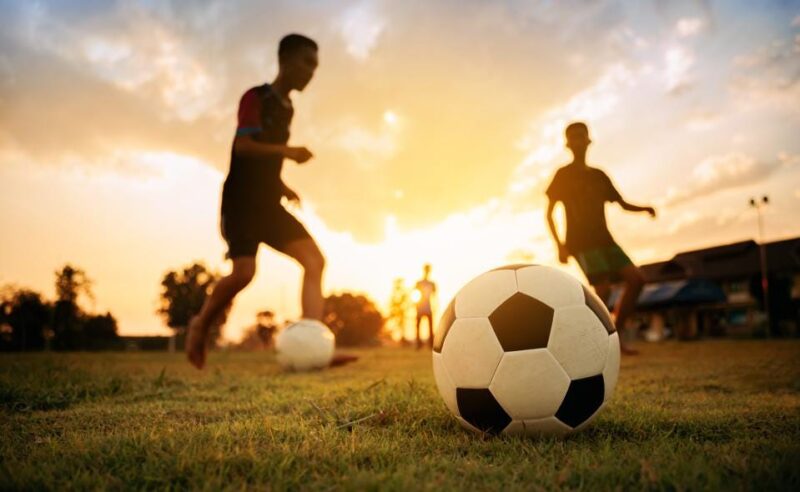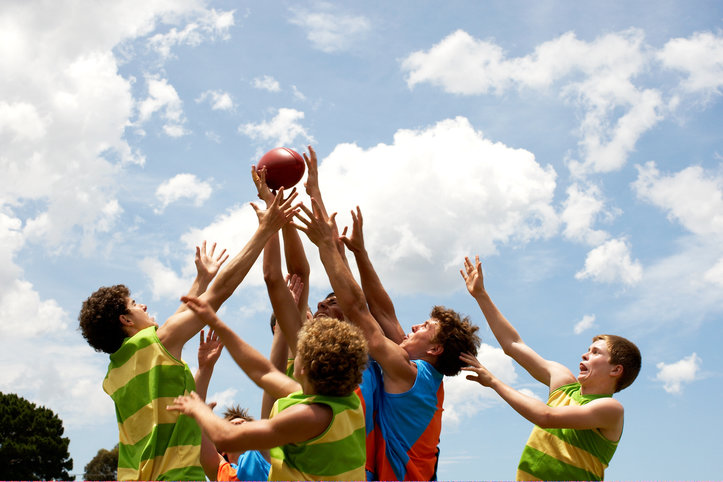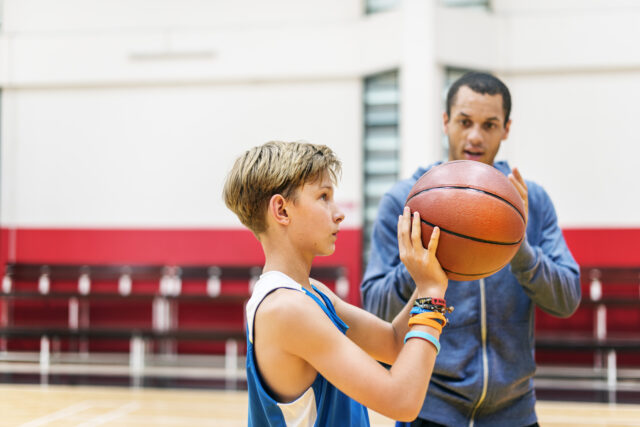Many people believe that high school sports can teach life skills and help with brain development. It can be a great opportunity for physical and mental development, but it also comes with some risks.
High school sports allow young people to learn teamwork and discipline and build self-confidence. It also helps them stay physically fit and active throughout their adolescent development.
But at the same time, there is always the possibility of injuries or other negative impacts on kids’ well-being. Before making any decisions, parents must understand the potential risks and benefits of letting their children play high school sports.
Benefits and Risks

Numerous studies show that high school sports can increase coordination, physical strength and endurance, agility, and overall body strength. Playing high school sports helps build positive character traits like self-confidence and teamwork. And it can help kids stay socially active.
When young people are in good shape, they are less likely to be overweight or obese than adults. Regular exercise during adolescence can also protect them from chronic diseases later in life by keeping them healthy or helping them avoid unhealthy weight gain.
Playing high school sports can also provide young people with valuable life skills, like working together as a team, learning from mistakes, and other crucial lessons for adulthood.
But just like anything else, there are also potential negative impacts.
There are potential risks of injuries and even death due to the physical nature of many sports. High school athletes are more likely to suffer concussions, joint damage, and other injuries during their playing years than those who do not play sports.
Concussions can lead to long-term complications like memory loss, learning disabilities, and depression. Chronic traumatic encephalopathy, or CTE, is a brain disease caused by repeated head injuries that can cause dementia and suicidal behavior. Participation in high school sports has been linked to this disease. The American Academy of Pediatrics recommends several steps to reduce the risk of concussions in young athletes who participate in contact sports.
The risk of injury, however, is not just a concern for athletes. It is also something that parents, teachers, coaches, and school administrators all need to be aware of. If a young athlete suffers an injury, the school may have to adjust its schedule or workouts or switch out a player for similar ones every once in a while. This can affect the team’s ability to prepare for an upcoming tournament or game.
Playing any sport can also put kids at risk of joint damage later in life. The most common kind of joint damage is arthritis, but when it’s not treated, it can lead to debilitating pain that affects a person’s mobility.
Arthritis can also cause chronic back pain, affecting the likelihood of an athlete having a successful career in their chosen field.
Many young athletes spend much time in the gym and on the field. They might not realize that they are overexerting their bodies, which makes them feel weak and fatigued even when not playing sports. This is especially true for young people who play as early as middle school when their bones are still developing.
It can also be a distraction for some students. This is especially true of sports involving physical contact and running, such as football, soccer, basketball, track, and field. High school sports can take time away from more important academic pursuits like the classwork and extracurricular activities most parents want their kids to focus on.
Other negative impacts include concerns over performance-enhancing drugs, steroid use, and the possibility of related injuries.
Effects on Adolescents

So how does playing high school sports affect young people?
According to Dr. Megan E. Anderson, Managing director of Pediatric Orthopaedics at Boston Children’s Hospital, the benefits of playing high school sports outweigh the risks. She says, “Playing some sports can provide important life skills that are difficult to learn in other ways.”
But there is also the potential for serious injuries, and if that were to happen, it could be a serious burden on the athlete and their family. It may lead to chronic pain and disability due to arthritis or even more devastating consequences like death for an athlete who has suffered a concussion.
Young people in high school sports are also likely to suffer from overuse injuries. If they are not careful, they can overexert themselves to the point where they can get hurt. Lots of running, jumping, and other physical activities can cause stress on the body’s joints and soft tissues, leading to injuries that could sideline a young athlete for weeks or even longer.
Overusing muscles and ligaments can also lead to elbow and knee pain. Hip and back injuries may also be common among young athletes who engage in high school sports. Since children are still growing, playing high school sports can put them at risk of overtraining, which burdens the heart and blood vessels.
Too much physical activity, especially repetitive and strenuous, can cause musculoskeletal conditions later in life, like degenerative joint disease or arthritis.
Many factors go into deciding whether high school athletics are right for kids. Various individual concerns and factors will play a role in determining whether a student is better off participating in their sport.
Parents should consider various things to see if watching their children play sports is right for them.
It would be normal if a parent or guardian is concerned about their child playing high school sports because they do not have much experience with or insight into athletics. But that does not mean they cannot help your child make the best decision possible.
The best thing you can do as a parent or guardian is to learn as much as possible about the sport your child wants to play. Learn about the skill sets and mental skills needed to do well in the game, the physical demands of playing it, and how they are likely to be impacted both on the field and off.
If your child is a good student and does well in class, that should play into the decision. If a parent wants their child to participate in athletics, they can also do things to help their child succeed.
Conclusion

Even though playing high school sports may be a positive experience overall, some dangers and risks are involved.
Parents should also be aware that there are many other activities where playing can be detrimental to a student’s health and safety. Parents should consider the benefits of physical activity in general and its role in overall health before deciding if their son or daughter would benefit from participating in athletics at all. Weighing up all these factors and giving your son or daughter the support they need to make the right decision will define their whole high school experience.
High school sports can be a fun experience as long as they know what to look for and how to make sure it is not a problem for them. The best thing you can do as a parent or someone who cares about them is to stay in touch with what they are doing and ensure they are not doing too much too soon.









